第54章
That every increase of the stock or revenue of a nation cannot be considered as an increase of the real funds for the maintenance of labour and, therefore, cannot have the same good effect upon the condition of the poor, will appear in a strong light if the argument be applied to China.
Dr Adam Smith observes that China has probably long been as rich as the nature of her laws and institutions will admit, but that with other laws and institutions, and if foreign commerce were had in honour, she might still be much richer. The question is, would such an increase of wealth be an increase of the real funds for the maintenance of labour, and consequently tend to place the lower classes of people in China in a state of greater plenty?
It is evident, that if trade and foreign commerce were held in great honour in China, from the plenty of labourers, and the cheapness of labour, she might work up manufactures for foreign sale to an immense amount. It is equally evident that from the great bulk of provisions and the amazing extent of her inland territory she could not in return import such a quantity as would be any sensible addition to the annual stock of subsistence in the country. Her immense amount of manufactures, therefore, she would exchange, chiefly, for luxuries collected from all parts of the world. At present, it appears, that no labour whatever is spared in the prOduction of food. The country is rather over-people in proportion to what its stock can employ, and labour is, therefore, so abundant, that no pains are taken to abridge it. The consequence of this is, probably, the greatest production of food that the soil can possibly afford, for it will be generally observed, that processes for abridging labour, though they may enable a farmer to bring a certain quantity of grain cheaper to market, tend rather to diminish than increase the whole produce; and in agriculture, therefore, may, in some respects, be considered rather as private than public advantages.
An immense capital could not be employed in China in preparing manufactures for foreign trade without taking off so many labourers from agriculture as to alter this state of things, and in some degree to diminish the produce of the country. The demand for manufacturing labourers would naturally raise the price of labour, but as the quantity of subsistence would not be increased, the price of provisions would keep pace with it, or even more than keep pace with it if the quantity of provisions were really decreasing. The country would be evidently advancing in wealth, the exchangeable value of the annual produce of its land and labour would be annually augmented, yet the real funds for the maintenance of labour would be stationary, or even declining, and, consequently, the increasing wealth of the nation would rather tend to depress than to raise the condition of the poor. With regard to the command over the necessaries and comforts of life, they would be in the same or rather worse state than before; and a great part of them would have exchanged the healthy labours of agriculture for the unhealthy occupations of manufacturing industry.
The argument, perhaps, appears clearer when applied to China, because it is generally allowed that the wealth of China has been long stationary. With regard to any other country it might be always a matter of dispute at which of the two periods, compared, wealth was increasing the fastest, as it is upon the rapidity of the increase of wealth at any particular period that Dr Adam Smith says the condition of the poor depends. It is evident, however, that two nations might increase exactly with the same rapidity in the exchangeable value of the annual produce of their land and labour, yet if one had applied itself chiefly to agriculture, and the other chiefly to commerce, the funds for the maintenance of labour, and consequently the effect of the increase of wealth in each nation, would be extremely different.
In that which had applied itself chiefly to agriculture, the poor would live in great plenty, and population would rapidly increase. In that which had applied itself chiefly to commerce, the poor would be comparatively but little benefited and consequently population would increase slowly.